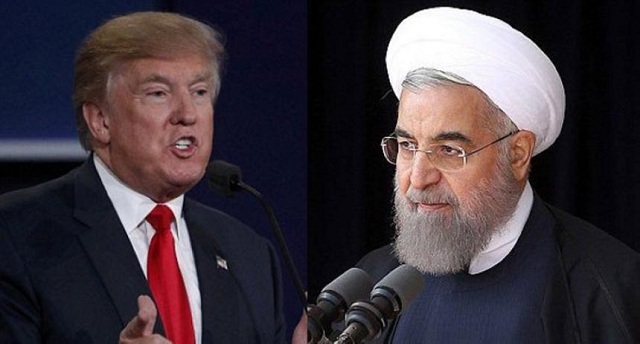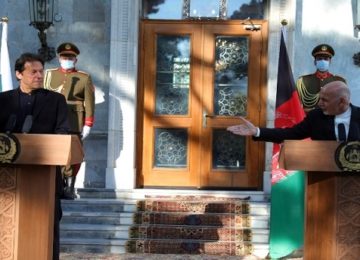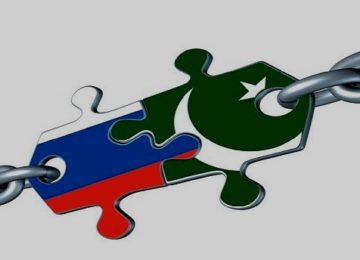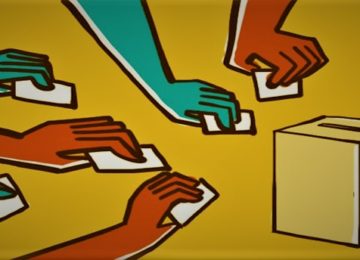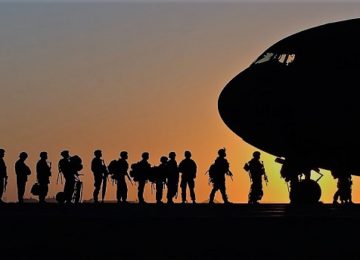Iran wants a peaceful Afghanistan and has, for long, opened its arms for the Taliban – its former foe – to give peace a chance in the war-torn country. Regionally speaking, every major country has some channel of communication with the Taliban, and with wisdom informing the US, it too has reached out to find a common ground with the group. Iran’s interest in Afghanistan, other than being its neighbor, lies in the Shia community that looks up to Iran’s support in a country with 80 per cent Sunnis. Iran has also spent in schools and media in the country, hence working on soft diplomacy. However, in the case of Afghanistan, it is not merely the Afghan government or its people that matters, it is rather the US and its allies that give direction to the Afghan policies.
As the Trump administration wheeled into the White House, Iran’s ties with Washington started deteriorating. First, it was the Joint Comprehensive Plan of Action (JCPoA), known commonly as the Iran nuclear deal that was scrapped followed by an avalanche of sanctions imposed, with stern instructions to the allies to discontinue any business with Tehran. Though USA’s business and relations with most of its allies and partners have nosedived with Trump in office, the Iranian saga is important not only because of the nuclear deal but also for the Middle East politics, where Iranian position is analyzed and viewed in relation to Israel and Saudi Arabia. The latest spate of sanctions, however, are meant to force Iran to renegotiate the nuclear deal and end Iran’s perceived interference in Yemen, Syria and Lebanon. During one of his visits to Israel, US National Security Advisor, John Bolton said,” Regime change in Iran is not American policy but what we want is a massive change in regime’s behavior.” Full US sanctions on Iran are due on November 5, 2018—180 days after Trump’s initial announcement of withdrawal from the JCPoA. The US Secretary of States, Mike Pompeo has set up an Iranian Action Group inside the State Department to use US leverage on companies and countries showing insignificant progress in severing trade ties, including in oil, with Iran.
Every passing day has brought more causalities to Afghanistan, however it was after the announcement of the US strategy for Afghanistan last year that led to a further escalation of in over 20 provinces in the country. The situation deteriorated after the end of the first ceasefire on June 17, 2018, as the Taliban attached check posts in Farah City, Amar Dara and Sheb Koli districts. Similar attacks were conducted in Helmand, Ghazni and Kunduz provinces. The Ghazni attack was the fiercest as it resulted in the deaths of 100 soldiers coupled with 20 civilians.
Seventeen years down the road, the US has finally realized what the world has been saying for all these years; to include the Taliban in the dialogue process to achieve lasting peace in the country. However, going paradoxical, the US is excluding major regional stakeholders, especially Iran and Russia, in the dialogue. Again an indication of ignoring ground realities. Afghanistan is ethnically a diverse country, overlapped with tribal dynamics, making the solution difficult to arrive at. People from diverse ethnic and religious backgrounds reside in Afghanistan. However, it is always the Pashtun versus the ‘others’. This sentiment and its surrounding tension of “otherness” is what demands a political solution. Any departure from this realization will garner anything but peace. The US, in the so-called Indo-Pacific, is friendly with only India. Russia, Iran, China and Pakistan are smarting over the US adversarial attitude. Not a good omen for Afghanistan.
These cluster of nations have actually restrained the US from going overboard with its policies of regime change, political intervention and economic influence. Routing the US out of the Middle East and not letting the region further deteriorate was possible only because of Russia and Iran. Over the Indian Ocean and the South China Sea, states such as Philippines, Maldives, Japan, and India were restrained from doing the US bidding, because China was overwhelmingly present in both the places. Until Trump, all these states had been tried, tested and given a lesson, through the policy of stick and carrot. With Trump in the office, the carrot has disappeared, and it is just the stick being used to shepherd. Breaking international norms of diplomacy and threading apart pledges among nation-states has been played out like scenes from a poker game. President Trump has walked out of the Nuclear Deal with Iran, pulled the US out from the Paris Agreement meant to mandate countries on climate change, thrown aside Asia Pacific Trade, while fate of North Atlantic Free Trade hangs in balance. Trump has also questioned NATO’s existence because of its near complete dependence on the US finances. He divided people on racial and ethnic grounds. The refugee policy of the US has ripped families apart—mothers separated from their children so that the pang of separation would pressurize the families to return to their homes. Such hostile policies only explain the DNA through which the US has always manned the world. Though it is now the US’ turn to face the music of its own making.
Just as a group in the White House has not allowed Trump’s temperament and impulses to destroy the country’s democratic credentials, the world out there, especially comprising of China, Russia, Iran and Pakistan, would not allow the US, be it under the Trump or any other administration, to make the world hostage to USA’s divisive policies. With such hostilities towards Iran, will the US allow the former to play a positive role? What will be the future of Charbahar? How will India -whose stakes are divided between the US and Iran – respond to the US demand of limiting trade relations with Afghanistan. On this, Marcus Chenevix, MENA researcher at TS Lombard, says, “This policy of isolating Iran runs directly counter to U.S. interests in Afghanistan”. Forcing Afghanistan to disrupt links with one of its largest trading partners, he concludes, “the Trump administration is hitting the beleaguered Afghan economy with yet another shock at a time when the government is already struggling against a reinvigorated Taliban.”
The Durdana Najam writer is a freelance journalist based in Lahore. (durdananajam1@gmail.com).



